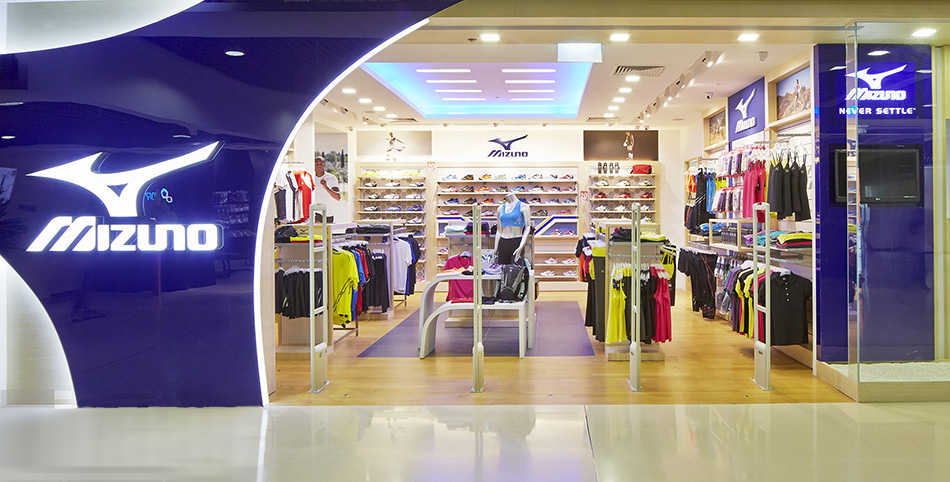Data tagging drives sales – Mizuno 4 months case study

Data tagging drives sales for Mizuno. 33.4% more sales for tagged items compared to the non tagged items at the same period of time. Even bigger gap observed in product page visitations and new users acquisition.
COMPANY OVERVIEW
The Mizuno Corporation is a Japanese sports equipment company which makes a wide variety of sports equipment and sportswear, for multiple sports. The company also sponsors many sports events and is a world renowned brand. Mizuno maintains its market presence through a chain of global online stores, as well as a store in Rakuten marketplace, where it sells thousands of products.
THE PROBLEM
Despite satisfactory sales results on Rakuten marketplace, Mizuno believed it can improve its numbers, specifically in three performance indicators: sales, page views and number of unique visits. To act upon this observation, Mizuno acquired Lisuto’s services to text tag its products on Rakuten, under assumption that it will indeed improve performance in these indicators and overall user experience.
THE SOLUTION
While tagging Mizuno’s products on Rakuten, Lisuto conducted a case study to examine the impact of text tagging on the performance of products, along the the indicators that mattered to Mizuno - sales, page views and unique users visits. The test period began in January 2021, which served as a benchmark for the rest of the test period, as no products have been tagged then. The case study then continued until April 2021.
In order to focus the results, only the top 1,000 most viewed tagged products during the test period were included in the case study, and the top 1,000 most viewed untagged products served as the control group.
METHODOLOGY
Over the three months study period, February served as the benchmark for March and April, since no products were tagged before or during February. Only the top 1,000 most viewed products during the test period were included in the study. Lisuto used the top 1,000 most viewed untagged products as a control group for the test period.
THE RESULTS
As we can see below, the results of the case study clearly indicate that text tagging has a significant beneficial impact on product performance in the metrics we tested.
Sales
The results clearly show that data tagging drives sales. The number of total sales indicate that tagged products perform better than untagged products, even at times of decline. As we can see from the numbers above, February was a slow month in terms of sales, but while untagged products suffered a decline in sales, tagged products managed to avoid any decline and remain in place.
March did not see any improvement in terms of sales, but still tagged products showed much more resilience and were able to remain about the same as January. At the same time, untagged products’ sales dropped by 27.5%.
In April tagged products finally managed to completely reverse the trend. While untagged products continued their decline ay 22.3%, tagged products enjoyed an 11% uptick in sales.
Overall, we can see that during the test period, tagged products outperformed untagged products by an average of 22.36%.
Pageviews
The results for pageviews paint an even clearer picture. From the start, tagged products page views soared by 44% compared to the month before, while untagged products managed only 4.4% increase in the same month.
March saw tagged products continue their impressive performance, maintaining 44% in page views compared to January. Untagged products, while showing some improvement, still lagged far behind tagged products, at 16.28%.
The page view numbers for tagged products exploded in April, rising by more than 75% compared to January. Untagged products’ continuous rise of 20.4% in page views is certainly overshadowed by the numbers of tagged products.
Throughout the test period, tagged products did better than untagged products by an average of almost 41%.
Unique users
The unique users data almost mirrors that of page views. February was a great month for tagged products, enjoying a 44.66% jump in the number of unique users they attracted, while untagged products barely moved at less than 5% rise.
In March, the number of unique users attracted by untagged products increased to 17.45%, but it remained way behind tagged products, which numbers increased by 45.4% compared to January.
April, again, saw both types of products enjoy increases, but while untagged products stopped at a 21% rise, tagged products attracted 77.5% more unique users than in January.
CONCLUSIONS
This case study clearly demonstrates the advantages of text tagging and how data tagging drives sales, page views and unique users acquisitions. It shows how tagged products consistently improve their performances from month to month, while always maintaining a significant gap from untagged products. On average, tagged products outperformed untagged products by almost 35% through the test period.
The results of this case study are in line with a number of other case studies conducted by Lisuto on the positive impact of tagging, such as Naturum, Right-on and Xebio.
With such significant business KPI improvements in a matter of mere months, investment of resources and effort into the product tagging looks like a wise decision that yields significant returns .



